Farmgirl Flowers本应在2020年欣欣向荣。该公司的总部位于旧金山,2019年年收入达到3200万美元,同比增长近50%。作为一家全美范围内提供鲜花配送服务的公司,鉴于今年1月和2月销售状况良好,若不是疫情,Farmgirl Flowers本可以顺利实现2020年年度计划,即年收入达到5000万美元。
“简而言之,在2020年的第一季度,一切都进展得非常顺利,”Farmgirl Flowers创始人及首席执行官克里斯蒂娜·斯坦贝尔表示。
之后新冠疫情爆发了。随着病毒在全球范围内的蔓延,当地和州政府官员迅速关闭了所有非必要企业。3月15日,居家令在旧金山湾区生效,斯坦贝尔不得不在12小时内停止公司的所有业务,紧接着该禁令范围扩大到了全州。
“因为我们马上就要迎来母亲节了,相当于鲜花行业的超级碗,所以我们现在正争分夺秒地调整公司结构,力求在疫情期间也能满足客户的需求。”斯坦贝尔说。她随后解释道,公司要想挺过夏季难关,5月收入至关重要,因为在夏季,鲜花配送的订单量通常会下降多达30%至50%。
“这份收入算是权宜之计,使得我们无需裁员也足以负担旧金山高昂的开销。虽然销售额在此期间下降了,但营业成本可不会也随之下降30%-50%。”斯坦贝尔说道。
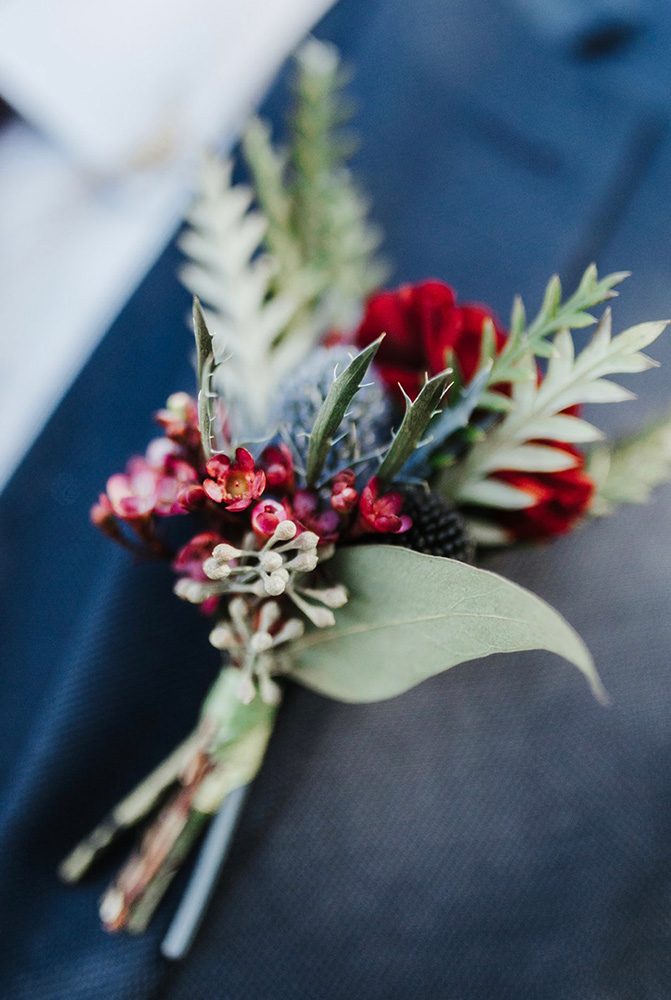
在美国,花卉业市场规模约为70亿美元。美国劳工统计局的数据显示,2018年美国大约有5.55万名花卉设计师。然而,在新冠经济危机出现之前,业内对于花卉业的就业和收入前景却持悲观态度。由于电商和大型超市所售鲜花折扣力度更大,消费者大多在线上或者超市购买鲜花,实体花店的销售额已逐渐下降。
去年,花卉业巨头1-800-Flowers在母亲节当天配送了2000多万枝鲜花。该公司表示,母亲节是该品牌一年中最重要的节日。“我们知道,对每个人来说,这都会是一个与众不同的母亲节。我们正在计划,帮助顾客以一种特殊的形式来表达对母亲的敬意——即使他们不能一起过节。”公司的一位发言人说。他还指出,这个月内,为了虚拟庆祝复活节和逾越节,客户就采用了送花、送食物以及其它礼物等方式。
往年的4月和5月正是结婚旺季,珍妮·玛雷蒂——奥兰多的Pixies and Petals的老板,通常每个周末需要筹办3到5场婚礼,有时一天就有3场。她表示,Pixies and Petals在订婚季之后一直都会有新的婚礼订单。(许多情侣在圣诞节,新年前夕和情人节前后订婚。)
但自今年3月起,一些客户开始要求婚礼延期。当人们开始讨论居家隔离,甚至政府还未出台正式居家令的时候,大批情侣就已要求将婚礼延期至几个月后。“在签订婚礼合同时,我们降低了预付款比例并提供了更灵活的付款计划和婚礼日期安排.”玛雷蒂说。“我们尽可能地让婚礼改期和筹办过程,对于新人来说轻松有趣。我们仍然应该是,他们大喜日子里有趣的一部分。”
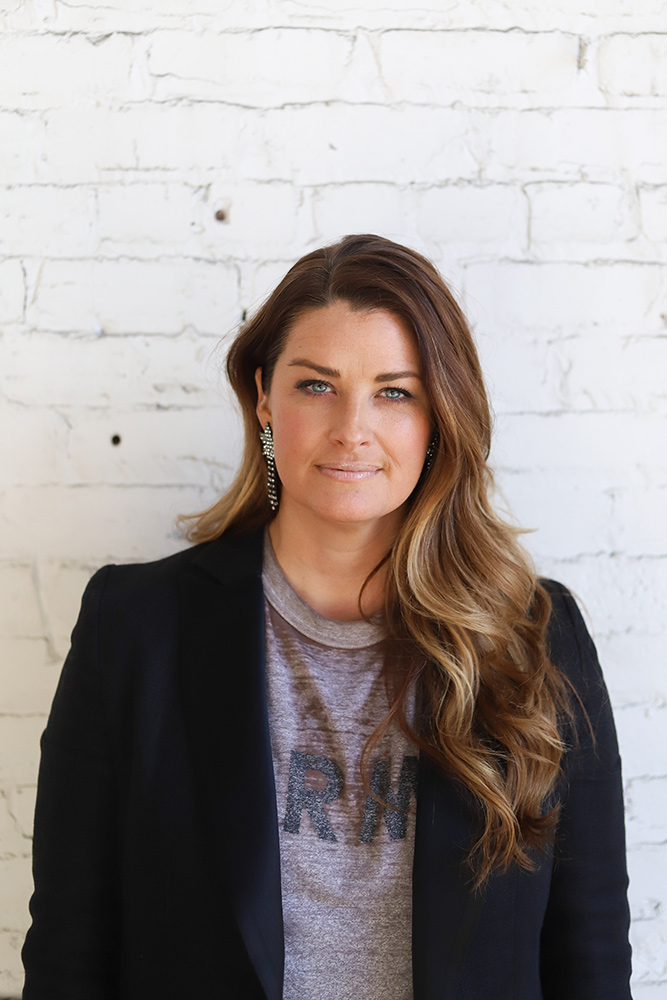
当美国1月20日发现第一例新冠患者时,斯坦贝尔就已经知道新冠疫情的存在了。她说,直到3月初,命令下发的前一天下午,她才听到有关州长加文·纽森计划在旧金山出台居家令的传言。她当时便决定,取消所有尚未发货的花卉订单,以减少员工感染的风险。但即便这样,Farmgirl Flowers在第二天还是不得不扔掉了价值15万美元的鲜花,因为那些是已经到货的部分。她考虑过捐赠,还与员工一起,带了尽可能多的花回家,并采取了各种手段以避免鲜花的浪费。但钱财的损失已然无法挽回。
居家令在旧金山湾区和全国范围内生效后,Farmgirl Flowers的销售额随即下降了近60%,这是该公司自2010年开业以来销售额增长最低的一周。斯坦贝尔不得不立即令近200名团队成员待岗,并将其称为是她创办公司以来最艰难的决定之一。
她说:“不得不承认,我的心情低落了一会儿,那天晚上洗澡时大声痛哭。但随后我便开始着手执行第一个计划,之前三个星期我们制定了许多转型计划。”
今年的母亲节是5月10日,星期日。4月9日起,旧金山各县将居家令延长至5月3日。鲜花是母亲节最受欢迎的礼物之一,据统计,美国人平均为每束花花费50美元。由于Farmgirl Flowers位于旧金山的总部和配送中心已暂时歇业,因此该公司不得不迅速进行转型,而且是以斯坦贝尔意想不到的速度——不到一天的时间。
“旧金山配送中心是我花了10年时间逐渐建立起来的,每一个细节我都十分清楚,因此我们在一周内就可以重新建造一个新配送中心,这可能会成为我一生中最自豪的时刻之一。我只是还需要时间来和新培训的团队成员进行磨合,以提高工作效率,我们正在尽快完成这些事情。”斯坦贝尔说。
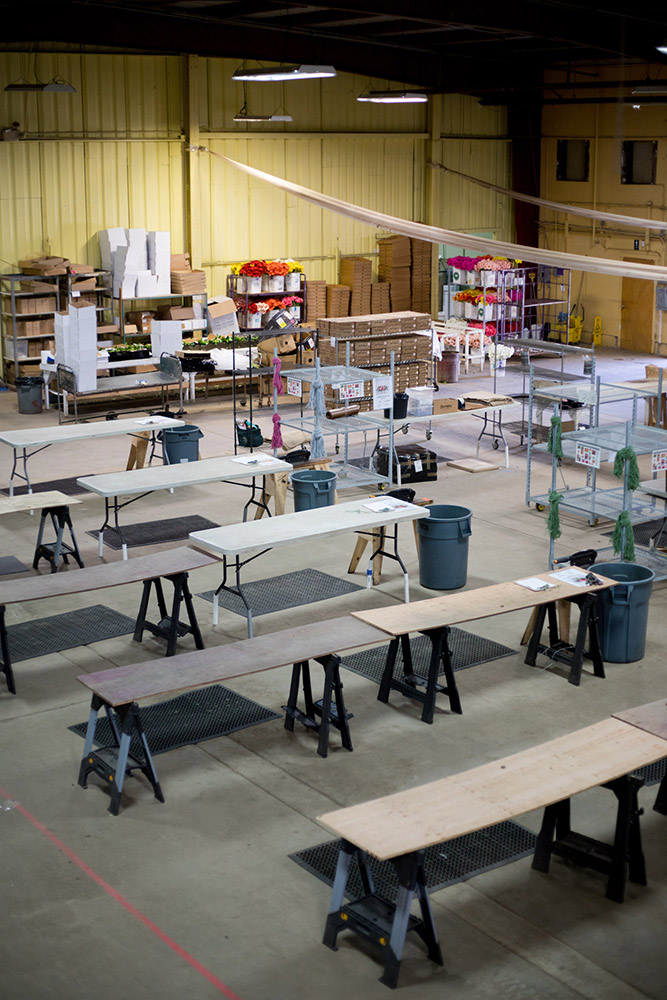
公司的第一项转型是将85%的订单立即转移到另一个配送中心。“幸运的是——我不是在随意使用这个词,今年早些时候,我们恰好决定在厄瓜多尔开设一个配送中心。”她表示。在旧金山的公司停业时,Farmgirl Flowers的订单只有10%至20%来自厄瓜多尔,其余均来自旧金山配送中心。该团队在关闭位处旧金山的公司时,12个小时之内,就将所有未来的订单都转移到了南美的配送中心。斯坦贝尔说:“我们并没有设定每日的发货量,但厄瓜多尔团队飞快地与我们对接,以便尽快启动和运行配送中心。”
但很显然,新冠疫情的爆发无国界之分。几周后,Farmgirl Flowers的南美团队也因为政府强制实施的宵禁而缩短了工作时间,这就减少了公司从该地发货的订单数量。但该公司并没有放弃订单,而是加倍努力,又在厄瓜多尔的另一个地区开设了第二个配送中心,从而实现了工作量翻番。斯坦贝尔正在策划一个更大的应急计划,以进一步实现分销渠道多元化。她计划,在接下来的5周内,在美国再开设至少5个配送中心。
“不难看出,即使是在正常年份,这段时间我们也是非常忙碌的。”斯坦贝尔说。“但在当前的特殊环境下、停工也情有可原的时候,为了在母亲节大获成功,我和我的团队的加班时间反而比平时还要长。”
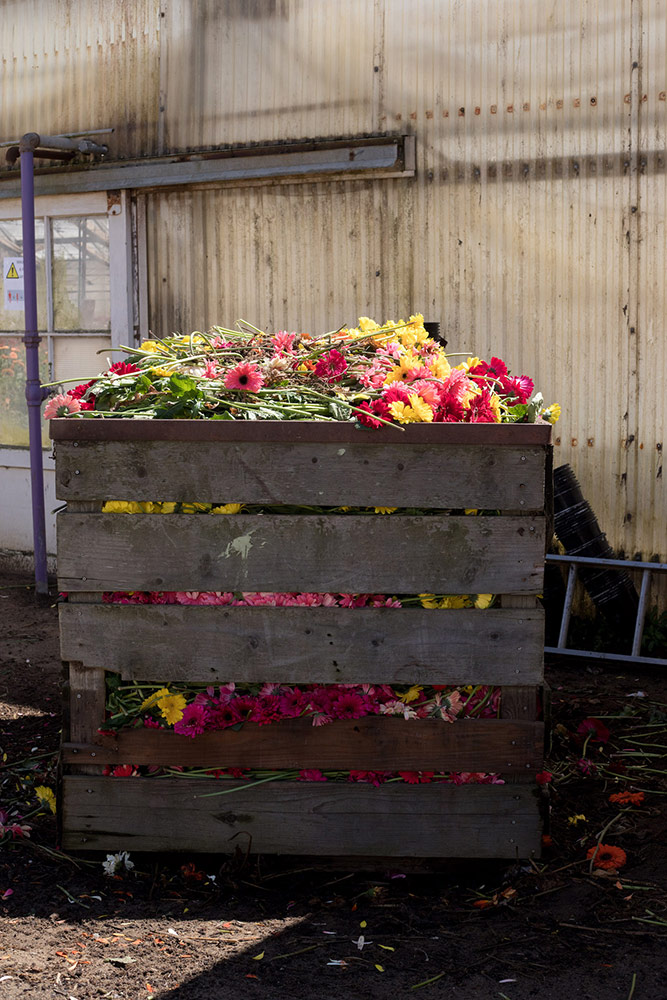
过去,由小团队在一个固定地点采购和生产所有的花束,这曾是斯坦贝尔的一个骄傲。然而,鉴于业务的发展以及她在疫情期间面临的艰难,公司未来规划的重心将会放在风险最小化和消除公司弱点上面。斯坦贝尔承认,如果没有南美团队,Farmgirl Flowers可能就会永久歇业。
她说:“我的所有短期和长期计划,都包含开设新配送中心这一点,以确保当新冠疫情或任何未来会威胁到公司发展的危机来临时,我们无需孤注一掷。”
Farmgirl Flowers每天仍有成千上万的订单,虽然数量大不如以前——原因很简单,因为没有能力满足需求。在3月中旬最初的下滑之后,该公司的销售量开始恢复平稳,甚至在一定程度上出现激增。过去十年中,Farmgirl Flowers坚持用粗麻布咖啡袋制作手工花束,咖啡袋是从当地烘焙商那里购买的,可以重复使用。这种风格在社交媒体上吸引了大量忠实的追随者。尽管顾客现在就可以买花,但目前距离母亲节还有几周的时间,所以公司收到的多是即时订单。其中一个原因是,斯坦贝尔说,她在社交媒体上收到了客户发来的“大量的消息”,他们订购鲜花只是为了支持公司。
“我知道,鲜花只是一种装饰品,而不是必需品,尤其是在这个时候,我非常感激。”斯坦贝尔表示。
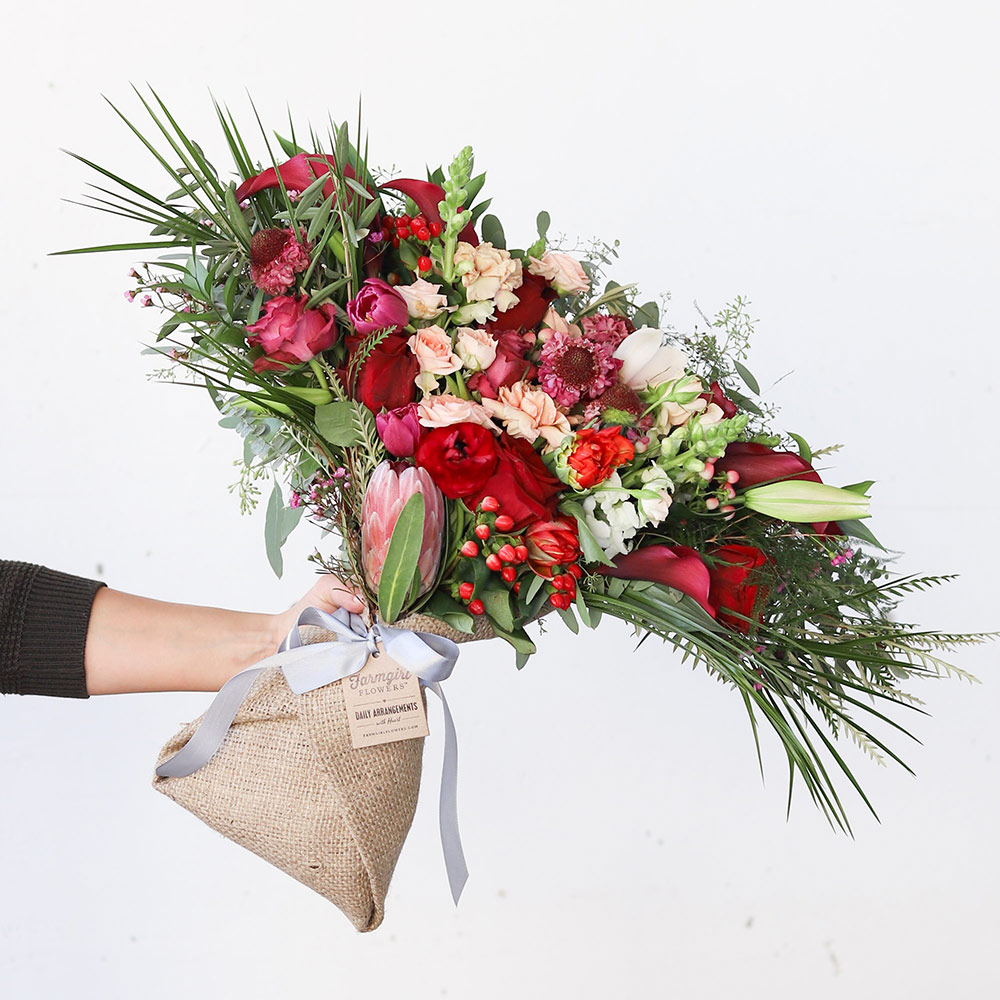
在人们可以线上订购礼物送到世界各地之前,送花就已成为了一种独特的表达形式。人们不能亲自到场时,可以通过送花来表达爱意或慰问。当世界上一半的人口处于隔离状态,朋友和家人在很长一段时间内无法看到彼此时,送花似乎是为这段社会疏远和自我隔离时期准备好的礼物。
在需要保持社交距离的地方,葬礼、守灵和追悼会都被取消了,所以消费者不能在这些活动上送花。起初,1-800-Flowers的慰问业务受到了影响,但该公司表示,此后客户想到了其它方式来表达同情,要么送花到家里,要么购买食品作为礼物,如水果篮,或者在Harry&David为其订餐。同时,公司表示,人们在日常生活中也会买花,比如参与虚拟生日派对时,这些订单会由当地花店的合作伙伴进行无接触配送。而且,出于只是想要送花的心理而产生的订单数量也在增加。
“由于政策不断变化,团队几乎每天都要重新考虑和调整计划,以满足需求。”该公司的一位发言人说。他指出,一些医院、高级护理中心和其他地方已经限制了配送,这一政策因州而异。

Pixies and Petals回应了目前的一些特殊需求——这些需求可能是因为新冠疫情的爆发而出现的。他们开发了一些迷你花束,其中一些花本是为客户的婚礼准备的,虽然婚礼被推迟了,但商品订单不能取消,而其余易逝品就捐赠给了当地医院。Pixies and Petals还为家庭开发了一项无接触配送服务:为孩子们准备的花朵王冠套装。玛雷蒂说,这是为了帮助孩子缓解无聊,也可以让父母和孩子在隔离期间一起开心玩乐。
目前,公司的日常运作已经暂时停止,只有玛雷蒂在正常工作,还有一些员工远程工作,他们在断断续续地完善婚礼策划。虽然6月是美国许多地方举行婚礼的黄金时间,但这其中不包括佛罗里达,因为佛罗里达的飓风季会一直从6月1日持续到11月30日,到那时该地的温度和湿度会大幅上升。但由于婚礼推迟,筹办者和情侣们都需要灵活安排婚礼,玛雷蒂已经预料到,她的团队在6月将会非常忙碌。对此,玛雷蒂持乐观态度,她正在努力保持忙碌的状态——研究花卉趋势和新的产品线、向设计师们提供指导和灵感,以及与其商议Pixies and Petals计划在秋季开发的不同装置。
“我一直在为我的团队制定培训计划,我们准备召开一个Zoom会议,这样我就可以为他们的婚礼策划和协调工作提供指导。”玛雷蒂说道。“我也尝试让他们了解公司的现状,例如当前累积的延期订单和新业务的数量,以使得他们能够保持高昂的情绪。因为一旦疫情过去,我们就会面临艰难局面。”

斯坦贝尔说,关于社交疏远是否真的是过去几周订单激增的原因之一,由于没有数据支撑,目前还不能做出结论。之所以如此谨慎,还因为,该公司的商业模式是建立在帮助客户们祝贺所爱之人,或者帮助祝福远方的人生日快乐的基础之上。
“然而,从一些卡片留言以及前几周的订单来看,我可以说,很多客户来找我们,是为了在实际上无法到场的情况下‘亲临现场’。”斯坦贝尔说。“新冠疫情造成的伤亡是毁灭性的,但在这场疫情中还有很多小悲剧——家庭分离、婚礼取消、永远不会再有的毕业典礼。我很感激,我们可以帮助客户使他们的朋友和家人感受到被爱,即便他们相距遥远。”(财富中文网)
译者:Claire
Farmgirl Flowers本应在2020年欣欣向荣。该公司的总部位于旧金山,2019年年收入达到3200万美元,同比增长近50%。作为一家全美范围内提供鲜花配送服务的公司,鉴于今年1月和2月销售状况良好,若不是疫情,Farmgirl Flowers本可以顺利实现2020年年度计划,即年收入达到5000万美元。
“简而言之,在2020年的第一季度,一切都进展得非常顺利,”Farmgirl Flowers创始人及首席执行官克里斯蒂娜·斯坦贝尔表示。
之后新冠疫情爆发了。随着病毒在全球范围内的蔓延,当地和州政府官员迅速关闭了所有非必要企业。3月15日,居家令在旧金山湾区生效,斯坦贝尔不得不在12小时内停止公司的所有业务,紧接着该禁令范围扩大到了全州。
“因为我们马上就要迎来母亲节了,相当于鲜花行业的超级碗,所以我们现在正争分夺秒地调整公司结构,力求在疫情期间也能满足客户的需求。”斯坦贝尔说。她随后解释道,公司要想挺过夏季难关,5月收入至关重要,因为在夏季,鲜花配送的订单量通常会下降多达30%至50%。
“这份收入算是权宜之计,使得我们无需裁员也足以负担旧金山高昂的开销。虽然销售额在此期间下降了,但营业成本可不会也随之下降30%-50%。”斯坦贝尔说道。
在美国,花卉业市场规模约为70亿美元。美国劳工统计局的数据显示,2018年美国大约有5.55万名花卉设计师。然而,在新冠经济危机出现之前,业内对于花卉业的就业和收入前景却持悲观态度。由于电商和大型超市所售鲜花折扣力度更大,消费者大多在线上或者超市购买鲜花,实体花店的销售额已逐渐下降。
去年,花卉业巨头1-800-Flowers在母亲节当天配送了2000多万枝鲜花。该公司表示,母亲节是该品牌一年中最重要的节日。“我们知道,对每个人来说,这都会是一个与众不同的母亲节。我们正在计划,帮助顾客以一种特殊的形式来表达对母亲的敬意——即使他们不能一起过节。”公司的一位发言人说。他还指出,这个月内,为了虚拟庆祝复活节和逾越节,客户就采用了送花、送食物以及其它礼物等方式。
往年的4月和5月正是结婚旺季,珍妮·玛雷蒂——奥兰多的Pixies and Petals的老板,通常每个周末需要筹办3到5场婚礼,有时一天就有3场。她表示,Pixies and Petals在订婚季之后一直都会有新的婚礼订单。(许多情侣在圣诞节,新年前夕和情人节前后订婚。)
但自今年3月起,一些客户开始要求婚礼延期。当人们开始讨论居家隔离,甚至政府还未出台正式居家令的时候,大批情侣就已要求将婚礼延期至几个月后。“在签订婚礼合同时,我们降低了预付款比例并提供了更灵活的付款计划和婚礼日期安排.”玛雷蒂说。“我们尽可能地让婚礼改期和筹办过程,对于新人来说轻松有趣。我们仍然应该是,他们大喜日子里有趣的一部分。”
当美国1月20日发现第一例新冠患者时,斯坦贝尔就已经知道新冠疫情的存在了。她说,直到3月初,命令下发的前一天下午,她才听到有关州长加文·纽森计划在旧金山出台居家令的传言。她当时便决定,取消所有尚未发货的花卉订单,以减少员工感染的风险。但即便这样,Farmgirl Flowers在第二天还是不得不扔掉了价值15万美元的鲜花,因为那些是已经到货的部分。她考虑过捐赠,还与员工一起,带了尽可能多的花回家,并采取了各种手段以避免鲜花的浪费。但钱财的损失已然无法挽回。
居家令在旧金山湾区和全国范围内生效后,Farmgirl Flowers的销售额随即下降了近60%,这是该公司自2010年开业以来销售额增长最低的一周。斯坦贝尔不得不立即令近200名团队成员待岗,并将其称为是她创办公司以来最艰难的决定之一。
她说:“不得不承认,我的心情低落了一会儿,那天晚上洗澡时大声痛哭。但随后我便开始着手执行第一个计划,之前三个星期我们制定了许多转型计划。”
今年的母亲节是5月10日,星期日。4月9日起,旧金山各县将居家令延长至5月3日。鲜花是母亲节最受欢迎的礼物之一,据统计,美国人平均为每束花花费50美元。由于Farmgirl Flowers位于旧金山的总部和配送中心已暂时歇业,因此该公司不得不迅速进行转型,而且是以斯坦贝尔意想不到的速度——不到一天的时间。
“旧金山配送中心是我花了10年时间逐渐建立起来的,每一个细节我都十分清楚,因此我们在一周内就可以重新建造一个新配送中心,这可能会成为我一生中最自豪的时刻之一。我只是还需要时间来和新培训的团队成员进行磨合,以提高工作效率,我们正在尽快完成这些事情。”斯坦贝尔说。
公司的第一项转型是将85%的订单立即转移到另一个配送中心。“幸运的是——我不是在随意使用这个词,今年早些时候,我们恰好决定在厄瓜多尔开设一个配送中心。”她表示。在旧金山的公司停业时,Farmgirl Flowers的订单只有10%至20%来自厄瓜多尔,其余均来自旧金山配送中心。该团队在关闭位处旧金山的公司时,12个小时之内,就将所有未来的订单都转移到了南美的配送中心。斯坦贝尔说:“我们并没有设定每日的发货量,但厄瓜多尔团队飞快地与我们对接,以便尽快启动和运行配送中心。”
但很显然,新冠疫情的爆发无国界之分。几周后,Farmgirl Flowers的南美团队也因为政府强制实施的宵禁而缩短了工作时间,这就减少了公司从该地发货的订单数量。但该公司并没有放弃订单,而是加倍努力,又在厄瓜多尔的另一个地区开设了第二个配送中心,从而实现了工作量翻番。斯坦贝尔正在策划一个更大的应急计划,以进一步实现分销渠道多元化。她计划,在接下来的5周内,在美国再开设至少5个配送中心。
“不难看出,即使是在正常年份,这段时间我们也是非常忙碌的。”斯坦贝尔说。“但在当前的特殊环境下、停工也情有可原的时候,为了在母亲节大获成功,我和我的团队的加班时间反而比平时还要长。”
过去,由小团队在一个固定地点采购和生产所有的花束,这曾是斯坦贝尔的一个骄傲。然而,鉴于业务的发展以及她在疫情期间面临的艰难,公司未来规划的重心将会放在风险最小化和消除公司弱点上面。斯坦贝尔承认,如果没有南美团队,Farmgirl Flowers可能就会永久歇业。
她说:“我的所有短期和长期计划,都包含开设新配送中心这一点,以确保当新冠疫情或任何未来会威胁到公司发展的危机来临时,我们无需孤注一掷。”
Farmgirl Flowers每天仍有成千上万的订单,虽然数量大不如以前——原因很简单,因为没有能力满足需求。在3月中旬最初的下滑之后,该公司的销售量开始恢复平稳,甚至在一定程度上出现激增。过去十年中,Farmgirl Flowers坚持用粗麻布咖啡袋制作手工花束,咖啡袋是从当地烘焙商那里购买的,可以重复使用。这种风格在社交媒体上吸引了大量忠实的追随者。尽管顾客现在就可以买花,但目前距离母亲节还有几周的时间,所以公司收到的多是即时订单。其中一个原因是,斯坦贝尔说,她在社交媒体上收到了客户发来的“大量的消息”,他们订购鲜花只是为了支持公司。
“我知道,鲜花只是一种装饰品,而不是必需品,尤其是在这个时候,我非常感激。”斯坦贝尔表示。
在人们可以线上订购礼物送到世界各地之前,送花就已成为了一种独特的表达形式。人们不能亲自到场时,可以通过送花来表达爱意或慰问。当世界上一半的人口处于隔离状态,朋友和家人在很长一段时间内无法看到彼此时,送花似乎是为这段社会疏远和自我隔离时期准备好的礼物。
在需要保持社交距离的地方,葬礼、守灵和追悼会都被取消了,所以消费者不能在这些活动上送花。起初,1-800-Flowers的慰问业务受到了影响,但该公司表示,此后客户想到了其它方式来表达同情,要么送花到家里,要么购买食品作为礼物,如水果篮,或者在Harry&David为其订餐。同时,公司表示,人们在日常生活中也会买花,比如参与虚拟生日派对时,这些订单会由当地花店的合作伙伴进行无接触配送。而且,出于只是想要送花的心理而产生的订单数量也在增加。
“由于政策不断变化,团队几乎每天都要重新考虑和调整计划,以满足需求。”该公司的一位发言人说。他指出,一些医院、高级护理中心和其他地方已经限制了配送,这一政策因州而异。
Pixies and Petals回应了目前的一些特殊需求——这些需求可能是因为新冠疫情的爆发而出现的。他们开发了一些迷你花束,其中一些花本是为客户的婚礼准备的,虽然婚礼被推迟了,但商品订单不能取消,而其余易逝品就捐赠给了当地医院。Pixies and Petals还为家庭开发了一项无接触配送服务:为孩子们准备的花朵王冠套装。玛雷蒂说,这是为了帮助孩子缓解无聊,也可以让父母和孩子在隔离期间一起开心玩乐。
目前,公司的日常运作已经暂时停止,只有玛雷蒂在正常工作,还有一些员工远程工作,他们在断断续续地完善婚礼策划。虽然6月是美国许多地方举行婚礼的黄金时间,但这其中不包括佛罗里达,因为佛罗里达的飓风季会一直从6月1日持续到11月30日,到那时该地的温度和湿度会大幅上升。但由于婚礼推迟,筹办者和情侣们都需要灵活安排婚礼,玛雷蒂已经预料到,她的团队在6月将会非常忙碌。对此,玛雷蒂持乐观态度,她正在努力保持忙碌的状态——研究花卉趋势和新的产品线、向设计师们提供指导和灵感,以及与其商议Pixies and Petals计划在秋季开发的不同装置。
“我一直在为我的团队制定培训计划,我们准备召开一个Zoom会议,这样我就可以为他们的婚礼策划和协调工作提供指导。”玛雷蒂说道。“我也尝试让他们了解公司的现状,例如当前累积的延期订单和新业务的数量,以使得他们能够保持高昂的情绪。因为一旦疫情过去,我们就会面临艰难局面。”
斯坦贝尔说,关于社交疏远是否真的是过去几周订单激增的原因之一,由于没有数据支撑,目前还不能做出结论。之所以如此谨慎,还因为,该公司的商业模式是建立在帮助客户们祝贺所爱之人,或者帮助祝福远方的人生日快乐的基础之上。
“然而,从一些卡片留言以及前几周的订单来看,我可以说,很多客户来找我们,是为了在实际上无法到场的情况下‘亲临现场’。”斯坦贝尔说。“新冠疫情造成的伤亡是毁灭性的,但在这场疫情中还有很多小悲剧——家庭分离、婚礼取消、永远不会再有的毕业典礼。我很感激,我们可以帮助客户使他们的朋友和家人感受到被爱,即便他们相距遥远。”(财富中文网)
译者:Claire
Farmgirl Flowers was on track to having a banner year in 2020. The San Francisco-based company hit $32 million in annual revenue in 2019, a rate of almost 50% growth year-over-year. And based on how well sales in January and February went, early projections were showing the flower vendor, which delivers across the contiguous United States, could meet a goal of $50 million in revenue for 2020.
"Long story short, things were going extremely well in the first quarter of 2020," says Christina Stembel, founder and CEO of Farmgirl Flowers.
Then came the coronavirus outbreak. With the spread of COVID-2019 making its deadly path around the world, local and state officials have raced to shutdown all non-essential businesses. Stembel had to close her entire operation within 12 hours once the shelter-in-place order went into place for the Bay Area, and soon after for the entire state of California, on March 15.
"As we’re coming up on Mother’s Day, what we like to call the Super Bowl of the flower industry, we’re now in a race against the clock to restructure the company in a way that will allow us to supply the demand we need to be there," Stembel says, explaining that May revenue is critical to get through the summer months, when demand for flower delivery typically declines by as much as 30% to 50%.
"That revenue is the stopgap that allows us to not lay off our team and continue to pay the high Bay Area overhead costs that don’t see the same 30% to 50% decline that sales do during that time," Stembel says.
The floral industry is a $7 billion market, and the U.S. Bureau of Labor Statistics recorded approximately 55,500 floral designers nationwide in 2018. However, even before the current economic crisis, both employment and revenue forecasts were withering to the growing rate of discounted prices on flowers online and in supermarkets, which have led consumers to purchase less flowers from industry operators.
Last year, floral giant 1-800-Flowers delivered more than 20 million stems for Mother’s Day, which the company says is the biggest occasion of the year for the brand. "We know this will be a very different Mother’s Day for everyone, and we have plans underway to help customers honor mom in a special way—even if they cannot be together," says a company spokesperson, who also noted customers have been sending flowers, food, and other gifts for "virtual" Easter and Passover celebrations this month.
April and May are also two of the busiest months for wedding season, and Jennie Maretti, owner of Pixies and Petals in Orlando, usually finds herself working on three to five weddings per weekend—sometimes as many as three per day—and she says Pixies and Petals had been consistently booking new business coming out of "engagement season." (Many couples get engaged around Christmas, New Year's Eve, and Valentine's Day.)
By the first week of March, a few clients started asking about postponing. But once just talk—not even the official order—about shelter-in-place came up, Maretti says the company was flooded with couples racing to rebook for later months. "I have offered reduced retainers and flexible payment plans for their wedding contracts and flexibility of moving their dates," Maretti says. "We are trying to make the process as painless as possible for them. We should still remain the fun piece of their Big Day."
Stembel had been aware of COVID-2019 for weeks before the first case was discovered in the U.S. on January 20. By early March, she says she had heard rumors about Gov. Gavin Newsom’s plans to institute a shelter-in-place order for the Bay Area, up until the afternoon before it happened. That’s when she made the decision to cancel all flower orders that had not yet left the farms to lessen the risk of infection for her employees. But, even with that decision, Farmgirl Flowers had to throw out about $150,000 worth of flowers the next day that had already arrived for that week’s orders. She looked into donating them, sent as many home with her employees as possible, and tried to do what they could to reduce the floral waste. But the dollars weren’t salvageable.
Farmgirl Flowers’ business dropped by almost 60% immediately following the shelter-in-place mandate in the Bay Area and more widely across the country, resulting in the lowest growth week the company had since opening in 2010. Stembel had to furlough almost 200 of her team members immediately, saying it was one of the hardest things she has to do since starting the company.
“I have to admit that I spent about an hour feeling sorry for myself, which might have included crying my eyes out in the shower that evening, but then I got to work on what has become the first of many pivot plans that the last three weeks have consisted of,” she says.
Mother’s Day is on Sunday, May 10 this year, and as of April 9, counties within the Bay Area have ordered residents to shelter in place until at least May 3. And flowers are, indeed, one of the more popular gifts to give on Mother's Day, with Americans spending $50 on average per bouquet, according to Statista. With its San Francisco headquarters and distribution temporarily out of commission for the foreseeable future, Farmgirl Flowers had to pivot more quickly than Stembel would have thought possible—in less than a day.
“Our San Francisco distribution center was a workhorse that I had spent 10 years building, so even though we’ve been able to launch a new one in a span of a week—which will probably go down as one of my proudest moments of my life—it takes time to build up production levels with newly trained team members, so we’re working to do just that as quickly as possible,” Stembel says.
The first pivot was the immediate shift of 85% more orders to its only other distribution center. “Luckily—and I don’t use that term lightly—we made the decision to open a distribution center in Ecuador earlier this year,” she notes. At the time of the Bay Area shutdown, Farmgirl Flowers was only doing about 10% to 20% of its orders from the Ecuador location, with the vast majority stemming from its San Francisco distribution center. The team shutdown the San Francisco location and shifted all future orders to the South American location within 12 hours. “It was not set up for that number of shipments each day, but our team in Ecuador worked with us at lightning speed in order to get it up and running ASAP,” Stembel says.
However, despite hasty travel bans, it's clear now that the coronavirus outbreak knows no borders. In the weeks since, Farmgirl Flowers’ South American team has also been placed on a reduced workday schedule due to a government-mandated curfew. This reduced the number of orders the company could ship from that location so, rather than throwing in the towel, the company doubled down by opening a second distribution center in another region of Ecuador in order to double production within the shortened workday hours. Stembel is plotting a larger contingency plan by further diversifying distribution, with a plan to open at least five more distribution and fulfillment centers in the United States within the next five weeks.
“All this to say that this is usually an incredibly busy time for us even in a normal year,” Stembel says. “But with such extreme extenuating circumstances, my team and I have been working even more overtime than usual to make Mother’s Day the successful holiday that we need it to be.”
While sourcing and producing all of the bouquets by a small team in one location used to be a point of pride for Stembel, as the business grows and she struggles to keep it afloat during and after the pandemic, future plans rest on minimizing risk and eliminating vulnerability. Without the South American team, Stembel admits Farmgirl Flowers would probably have had to close the doors for good.
“All of my plans, both short-term and long-term, will involve opening new shipping points and distribution facilities to help ensure that if COVID-2019 or any other future threat prevents itself, we don’t have all of our eggs in one basket,” she says.
Farmgirl Flowers is still shipping thousands of orders a day, but not at the same volume as before— simply because there isn’t the ability to meet demand. But even after that initial decline in mid-March, the company’s sales started to level again—and even surge to some extent. Farmgirl Flowers’ style for hand-tied bouquets with reused burlap coffee bags sourced from local roasters has generated a sizable and loyal following on social media over the last decade. Although customers can place orders now, Mother’s Day is still weeks away, so immediate orders have sprouted from a few different camps. For one, Stembel says she has received an “outpouring of messages on social media” from customers who ordered flowers simply to support the company.
“I know that flowers are a nice to have, not a need to have, especially in this time, and I couldn’t be more grateful,” Stembel says.
Well before anyone could order gifts online to deliver anywhere around the world, sending flowers has been distinct as a method for sharing love or condolences when one can’t be there in person. And when half of the world’s population is on lockdown, preventing friends and family from being able to see one another for an indefinite amount of time, flower delivery seems primed as the gift to give in this time of social distancing and self-isolation.
Where there are social distancing protocols, funerals, wakes, and memorial services have been cancelled, so consumers can't send flowers to the services. When this initially happened, 1-800-Flowers saw its sympathy business impacted, but the company says customers have since found other ways to express their condolences, either by sending flowers to homes or buying food gifts, such as fruit baskets or prepared meals from its Harry & David brand. The company says it continues to see orders—with contactless delivery via local florist partners—for everyday occasions, including virtual birthday parties, as well as an uptick for floral gifts sent "just because."
"It has been a very dynamic and evolving environment, and the team has had to rethink and reset plans almost daily to meet demand," says a spokesperson for the company, noting that some hospitals, senior care centers, and other facilities have restricted deliveries, and this policy varies among cities to states.
Pixies and Petals responded to its current demand—possibly generated by COVID-2019 —by developing mini bouquets with some of the flowers intended for client weddings, which were postponed, but it was too late to cancel the goods. The company donated the rest of the perishable product to local hospitals. The company has also developed a non-contact delivery service for families: flower crown kits for kids, which Maretti says are meant to help ease boredom, and can be fun for parents and their kids to do together during the lockdown.
Typical day-to-day operations have temporarily ceased, with only Maretti working daily and a few staff members working remotely, picking up wedding planning projects intermittently. While June is a prime time for weddings in many other sites around the country, it is not in Florida as the heat and humidity ticks up considerably—not to mention hurricane season runs from June 1 through November 30. But as weddings get postponed and vendors and couples alike will need to be flexible, Maretti already expects June will be extremely busy for her team. Remaining optimistic, Maretti is trying to stay busy by looking into into floral trends and new product lines, forwarding tutorials and inspiration to her designers while consulting on different installations that Pixies and Petals plans to develop in the fall.
"I have been creating training programs for my team, and we are about to jump on a Zoom conference [call] so I can work on certifying them for wedding planning and coordination," Maretti notes. "I have also been trying to keep spirits high by keeping them in the loop of the postponements and new business that we have been booking. We will be slammed once things pass."
Stembel says she doesn’t have the data yet to make a conclusion if social distancing has actually contributed to the surge of orders in the last few weeks, especially as the company already based its business model around helping loved ones celebrate or wish someone a happy birthday from afar.
“I can say, however, from seeing some of the notes on our recipient cards, and the orders that have come in the past few weeks, that so many of our customers have come to us to help them be ‘there’ when they can’t actually be there in person,” Stembel says. “The casualties from COVID-2019 have been devastating, but there are also so many lesser tragedies of this pandemic—families separated, cancelled weddings, graduations—which will never come to be. I’m grateful that we can help our customers help their friends and family feel loved, even from a distance.”






